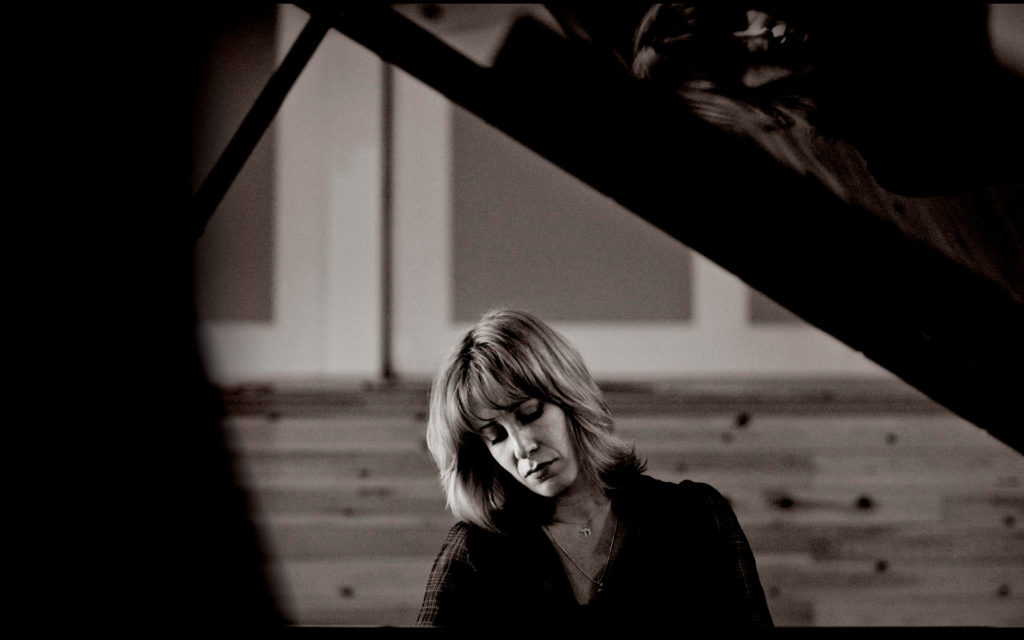The Loneliness of the Concert Pianist
Interview
Flamboyant Argentinian pianist Ingrid Fliter is looking forward to sharing music with colleagues at the London Piano Festival, she tells Jessica Duchen.
The London Piano Festival was founded in 2016 by the celebrated piano duo of Katya Apekisheva and Charles Owen and in three short years has become a highlight of the pianophiles’ calendar. Over a long weekend it brings to Kings Place a cavalcade of fleet-fingered stars from around the world who perform alone, in duo and – in a giant gala event – sometimes en masse too.
‘Beethoven enlightened and helped me even in challenging moments’
This year’s guests include the Argentinian pianist Ingrid Fliter, an artist adored for her irresistibly mercurial, fiery and tender playing. Moreover, her sociable nature should make her the perfect LPF performer. ‘We are very lonely as pianists, normally,’ Fliter remarks, ‘so I think this festival is a wonderful initiative. Sharing the music with people you like is something that I want more and more to develop. I didn’t have enough opportunities to play chamber music when I was a child and a teenager, but you can learn so much from doing it.’
Fliter’s festival recital features two of the composers closest to her heart. She opens with two of Beethoven’s Op. 31 sonatas, No. 2 in D minor (The Tempest) and No. 3 in E flat; and ends with Chopin’s 24 Preludes, Op. 28. ‘I grew up playing Beethoven and quickly discovered the strength and the power of his message,’ she says. ‘It has enlightened and helped me even in challenging moments. I always thought that if such a man could deal with difficulties the way he did, with such courage, why shouldn’t we take this as an example?’
These sonatas were written at the time when Beethoven was facing up to his incurable deafness, which precipitated a near-suicidal crisis. ‘It seems strange to think of Op. 31 No. 3 being composed in those conditions because it’s full of humour, optimism and life energy!’ Fliter says. As for the ‘rather dark and intimate’ D minor sonata, she has doubts about the Tempest association: ‘It’s a bit limiting to think that Beethoven was representing something that he read. He went always much further,’ she suggests. ‘The last movement is like a mantra: you get in there and you could play it forever. It’s a question of being connected to something highly spiritual.’

‘The key to Chopin lies not in the piano, but the human voice’
Chopin’s place in Fliter’s life is equally seminal – not least because she won a silver medal in the International Chopin Competition in Warsaw in 2000. The key to Chopin lies not in the piano, she suggests, but in the human voice: ‘How you make the piano sing is key to all, because bel canto was his ideal. We have to come to terms with the instrument’s percussive character, play against that and imagine we are singers. That’s very difficult, but incredibly fulfilling.’
The 24 Preludes are, for her, the pinnacle of his achievements. ‘Each prelude is a different face of the human soul, a different experience, character and way of expressing your relationship with life. It’s almost a testament of what he was thinking – about beauty, life and death, and about the lightness and darkness of living.
Fliter’s visit to London is part of a season in which Beethoven is inevitably central – and next year, 2020, marks the 250th anniversary of his birth. ‘I’m playing some of the concertos around the world; I am playing with a friend all the violin sonatas; and in every recital possible I am playing as many sonatas as I can,’ she says. ‘In Philadelphia I’m part of a cycle of the sonatas.’
That cycle is split with three other leading pianists: another valuable chance, perhaps, to make music together, rather than alone.